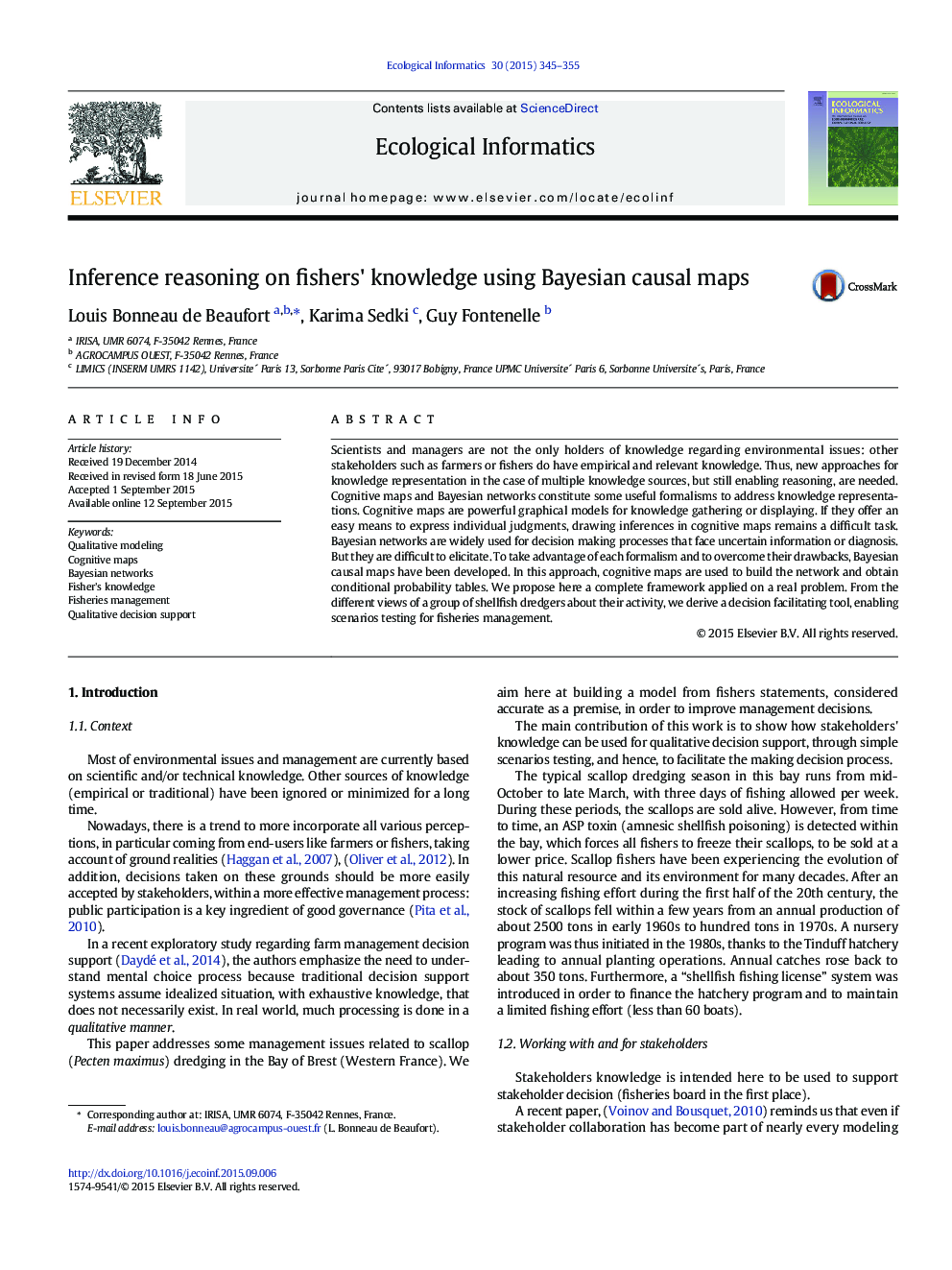| Article ID | Journal | Published Year | Pages | File Type |
|---|---|---|---|---|
| 6295768 | Ecological Informatics | 2015 | 11 Pages |
Abstract
Scientists and managers are not the only holders of knowledge regarding environmental issues: other stakeholders such as farmers or fishers do have empirical and relevant knowledge. Thus, new approaches for knowledge representation in the case of multiple knowledge sources, but still enabling reasoning, are needed. Cognitive maps and Bayesian networks constitute some useful formalisms to address knowledge representations. Cognitive maps are powerful graphical models for knowledge gathering or displaying. If they offer an easy means to express individual judgments, drawing inferences in cognitive maps remains a difficult task. Bayesian networks are widely used for decision making processes that face uncertain information or diagnosis. But they are difficult to elicitate. To take advantage of each formalism and to overcome their drawbacks, Bayesian causal maps have been developed. In this approach, cognitive maps are used to build the network and obtain conditional probability tables. We propose here a complete framework applied on a real problem. From the different views of a group of shellfish dredgers about their activity, we derive a decision facilitating tool, enabling scenarios testing for fisheries management.
Related Topics
Life Sciences
Agricultural and Biological Sciences
Ecology, Evolution, Behavior and Systematics
Authors
Louis Bonneau de Beaufort, Karima Sedki, Guy Fontenelle,
